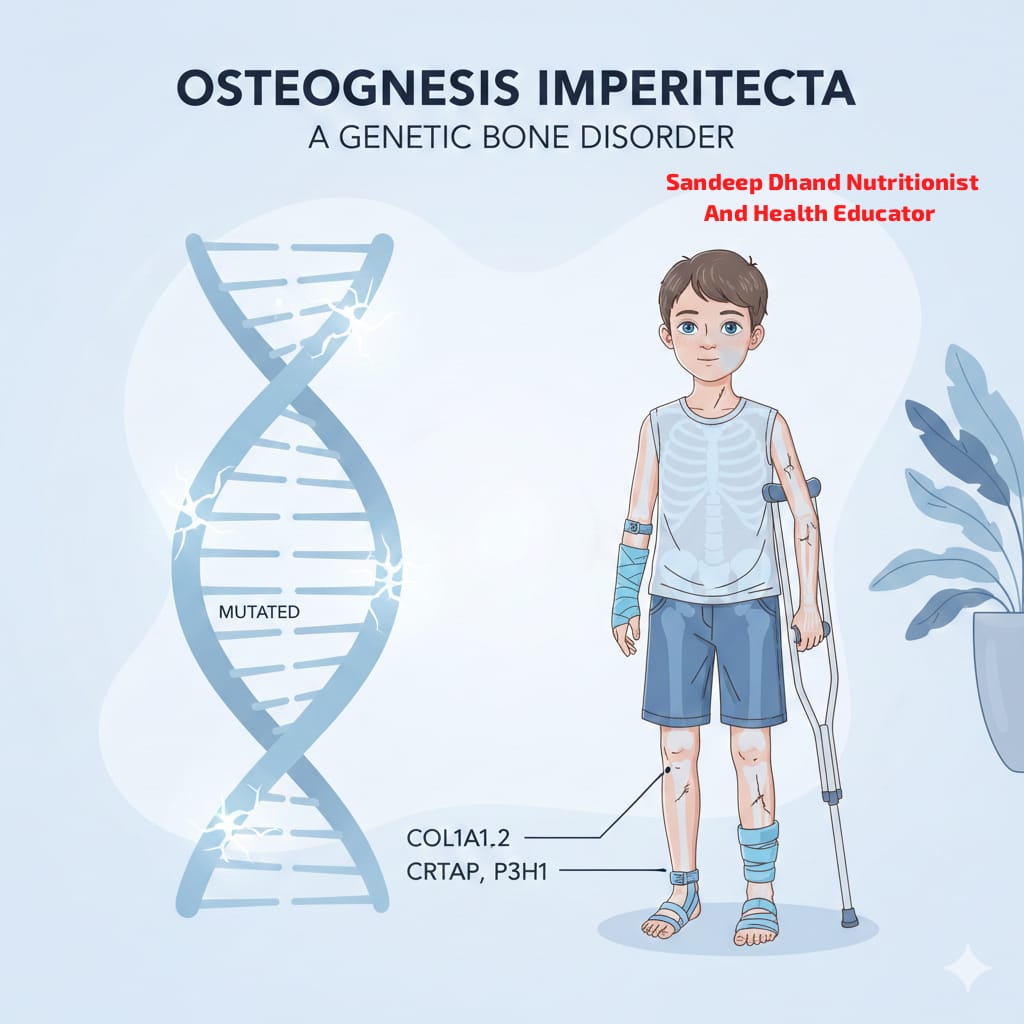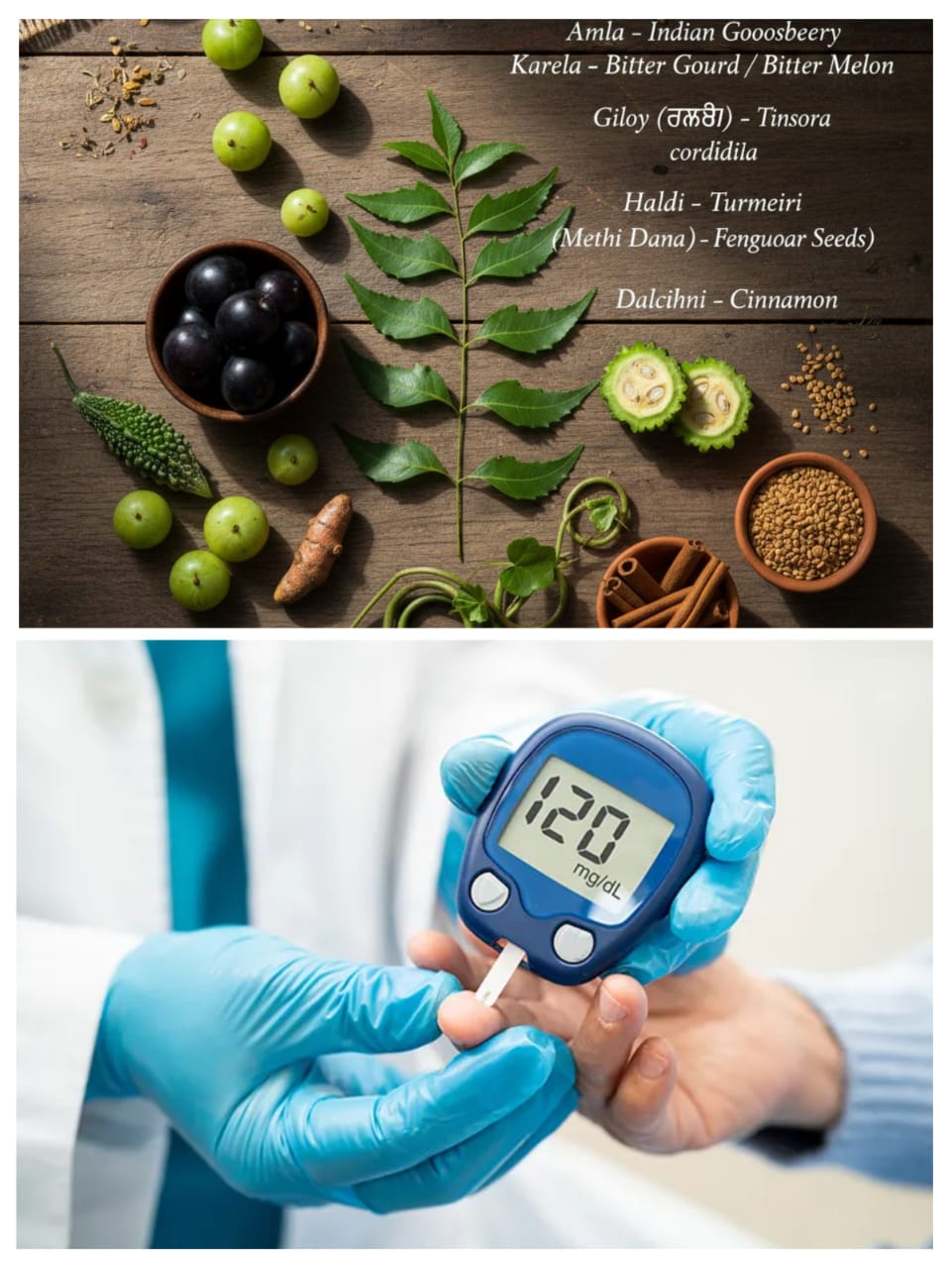Sandeep Dhand
Nutritionist And Health Educator
Introduction
Vitamin C, also called ascorbic acid, is an essential water-soluble vitamin that plays a vital role in human health. It boosts immunity, helps in collagen production, keeps the skin healthy, improves iron absorption, and accelerates wound healing. Since the human body cannot store or produce Vitamin C, it must be taken from food sources daily. A deficiency of Vitamin C may cause scurvy, fatigue, weak immunity, and poor wound healing. Thankfully, many plant foods are naturally rich in Vitamin C along with other nutrients like fiber, potassium, folate, and antioxidants.
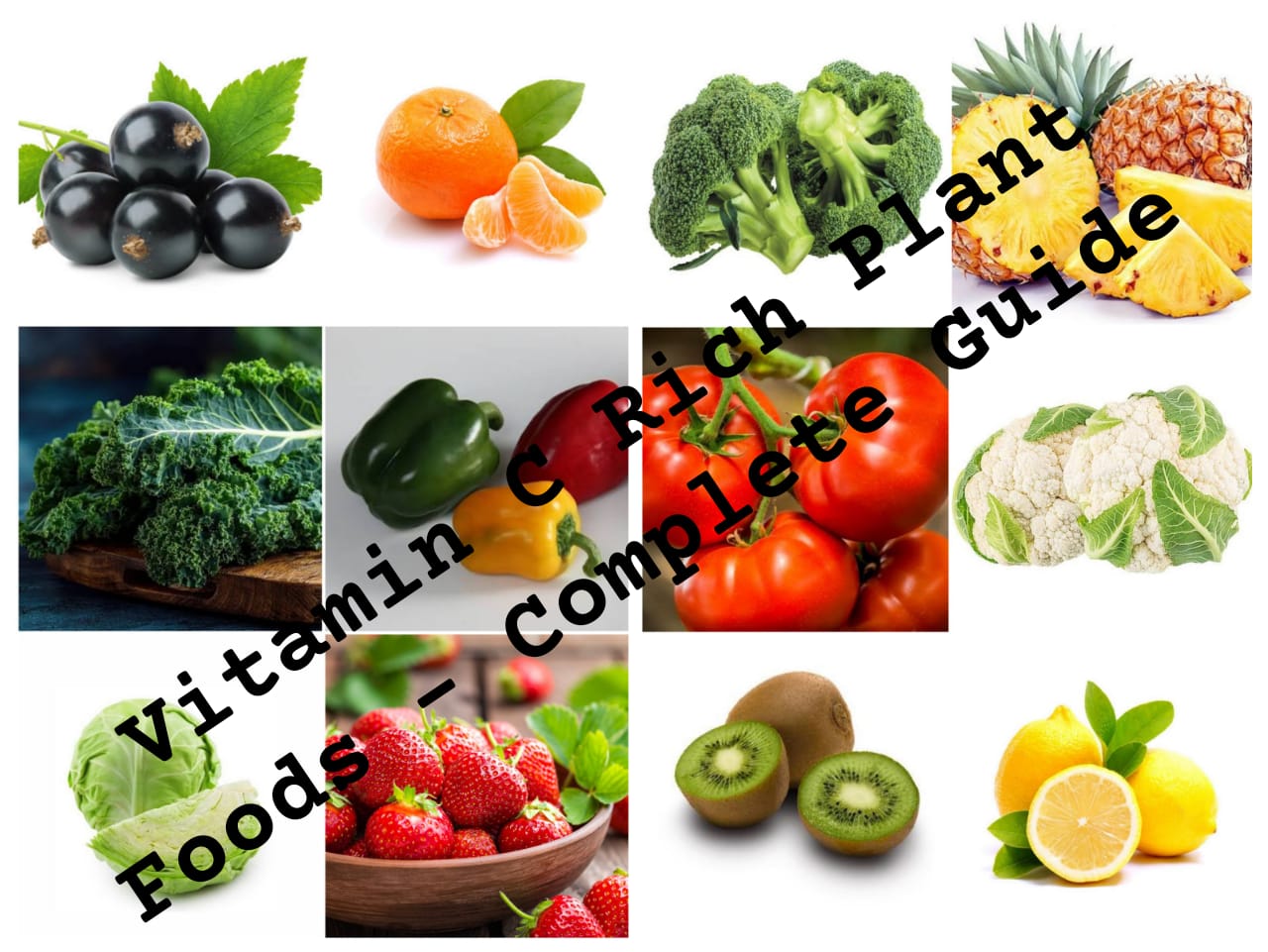
This article explains some of the best Vitamin C-rich plant foods, their nutrition values per 100 grams, and their health benefits in simple words.
- Broccoli
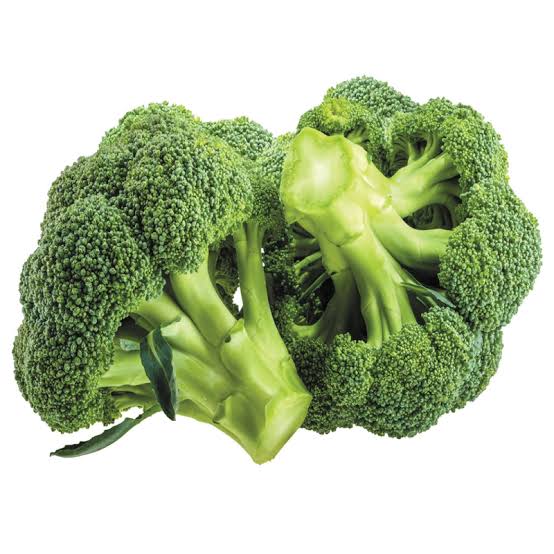
Nutrition Value (per 100 g):
Calories: 34 kcal
Vitamin C: 89 mg
Protein: 2.8 g
Carbohydrates: 6.6 g
Fiber: 2.6 g
Vitamin K: 101 mcg
Potassium: 316 mg
Benefits:
Broccoli is a superfood vegetable from the cruciferous family. It is low in calories but high in nutrients. The high Vitamin C content makes it excellent for boosting immunity and keeping the skin healthy. Vitamin K helps in bone strength and blood clotting. Its fiber improves digestion and gut health. Antioxidants present in broccoli fight harmful free radicals and lower the risk of heart disease and cancer. Eating broccoli regularly, either steamed, boiled, or lightly sautéed, adds valuable nutrients to the diet.
- Blackcurrants
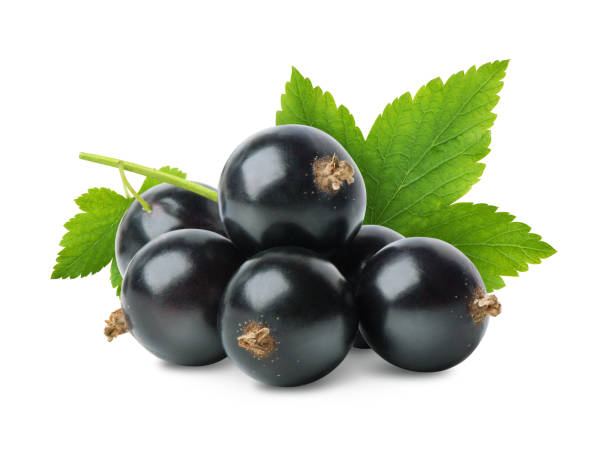
Nutrition Value (per 100 g):
Calories: 63 kcal
Vitamin C: 180 mg
Protein: 1.4 g
Carbohydrates: 15 g
Fiber: 6.8 g
Potassium: 322 mg
Iron: 1.5 mg
Benefits:
Blackcurrants are among the richest sources of Vitamin C. They contain almost four times the amount found in oranges. This makes them powerful immunity boosters. The anthocyanins give them their dark purple color and provide strong antioxidant effects, protecting the body from inflammation and cell damage. Blackcurrants also support blood circulation, improve eye health, and reduce tiredness. Their high iron helps in red blood cell formation. Including them in smoothies, juices, or eating fresh berries is an easy way to get daily Vitamin C.
- Cauliflower
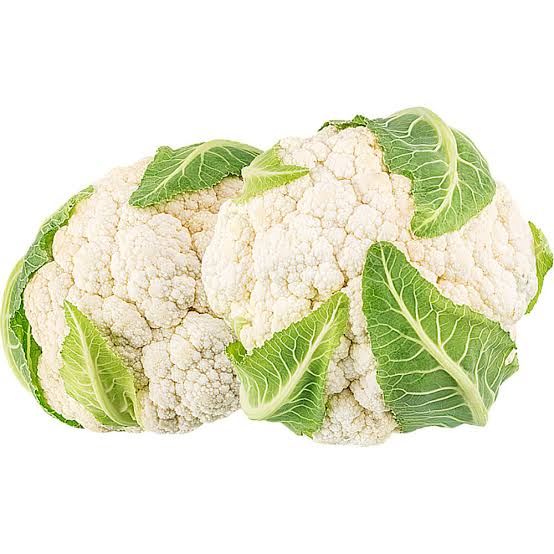
Nutrition Value (per 100 g):
Calories: 25 kcal
Vitamin C: 48 mg
Protein: 1.9 g
Carbohydrates: 5 g
Fiber: 2 g
Vitamin K: 15 mcg
Folate: 57 mcg
Benefits:
Cauliflower is another cruciferous vegetable rich in Vitamin C. Its antioxidants protect against free radicals and reduce the risk of heart disease. Folate in cauliflower supports healthy cell growth, which is especially important during pregnancy. With very low calories, it is excellent for weight control. The fiber aids digestion and keeps blood sugar balanced. Cauliflower can be eaten roasted, boiled, or used as a substitute for rice and mashed potatoes in low-carb diets.
- Tomatoes
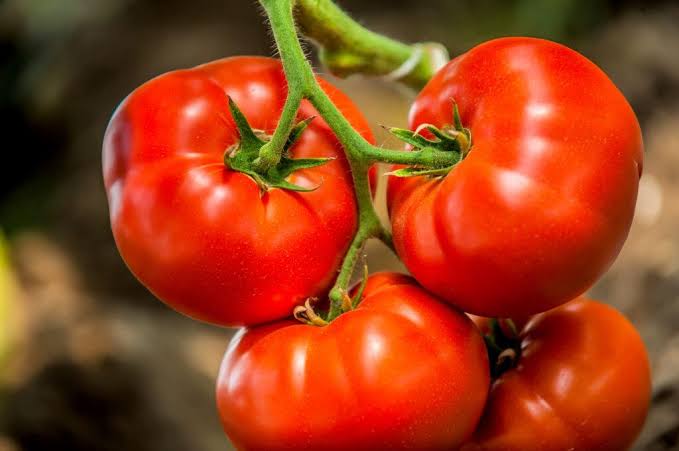
Nutrition Value (per 100 g):
Calories: 18 kcal
Vitamin C: 23 mg
Protein: 0.9 g
Carbohydrates: 3.9 g
Fiber: 1.2 g
Potassium: 237 mg
Lycopene: High
Benefits:
Tomatoes are juicy red fruits packed with Vitamin C and the antioxidant lycopene. Lycopene is well known for reducing the risk of heart disease and prostate cancer. The Vitamin C in tomatoes improves skin, strengthens immunity, and helps in healing wounds. Potassium in tomatoes supports blood pressure control. Tomatoes are hydrating due to their high water content and help maintain digestion. They can be eaten raw in salads, cooked in curries, or consumed as juice and soups. Cooking tomatoes increases lycopene availability, making them even healthier.
- Limes

Nutrition Value (per 100 g):
Calories: 30 kcal
Vitamin C: 29 mg
Protein: 0.7 g
Carbohydrates: 11 g
Fiber: 2.8 g
Potassium: 102 mg
Benefits:
Limes are tangy citrus fruits filled with Vitamin C and antioxidants. Their Vitamin C helps strengthen immunity and promotes collagen formation for youthful skin. Limes also improve digestion and support hydration. The citric acid present prevents kidney stones by increasing citrate levels in urine. Regular use of lime water helps in detoxification and weight control. Limes also add a refreshing taste to salads, chutneys, and drinks, making them both healthy and tasty.
- Oranges
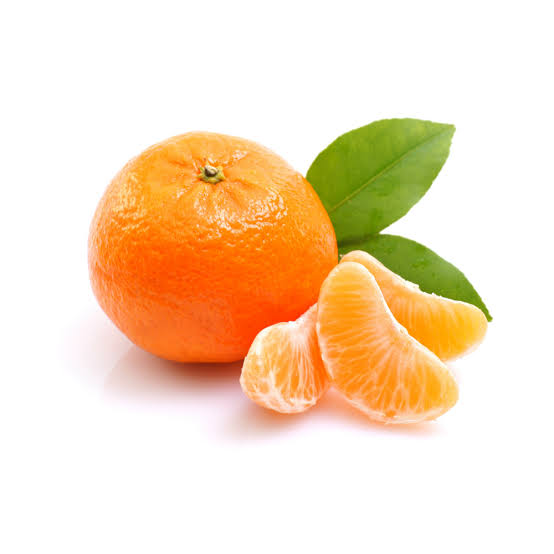
Nutrition Value (per 100 g):
Calories: 47 kcal
Vitamin C: 53 mg
Protein: 0.9 g
Carbohydrates: 12 g
Fiber: 2.4 g
Potassium: 181 mg
Folate: 30 mcg
Benefits:
Oranges are among the most famous Vitamin C-rich fruits. They boost immunity, improve skin, and promote healing. Their high fiber supports digestion and reduces constipation. Oranges also lower blood pressure and reduce cholesterol, promoting heart health. Folate supports brain and cell functions. The antioxidants fight free radicals and slow aging. Oranges can be eaten fresh, juiced, or added to desserts. Eating the whole fruit is better than juice, as it retains fiber.
- Watercress

Nutrition Value (per 100 g):
Calories: 11 kcal
Vitamin C: 43 mg
Protein: 2.3 g
Carbohydrates: 1.3 g
Fiber: 0.5 g
Calcium: 120 mg
Iron: 0.2 mg
Benefits:
Watercress is a leafy green with one of the highest nutrient densities of any plant. Its Vitamin C supports immunity, skin health, and strong bones. The calcium content strengthens teeth and bones, while iron improves blood quality. Antioxidants in watercress help fight cancer and aging effects. It is very low in calories but rich in vitamins, making it excellent for weight loss diets. Watercress can be eaten raw in salads, blended into soups, or used as a garnish.
- Kale
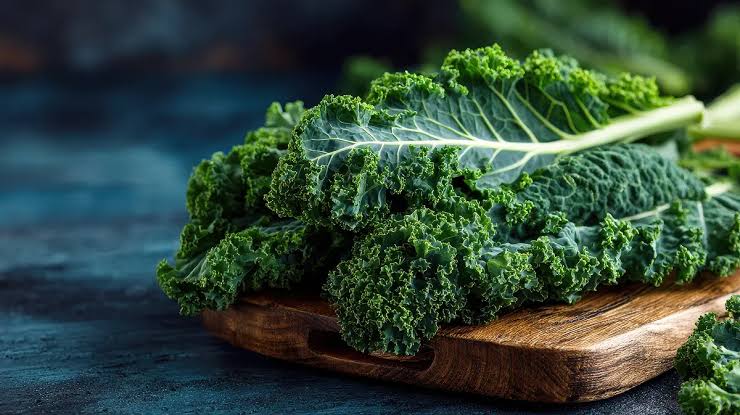
Nutrition Value (per 100 g):
Calories: 49 kcal
Vitamin C: 120 mg
Protein: 4.3 g
Carbohydrates: 8.8 g
Fiber: 3.6 g
Vitamin K: 389 mcg
Calcium: 150 mg
Benefits:
Kale is considered a superfood because of its very high nutrient density. With more Vitamin C than oranges, it strongly supports immunity. Vitamin K and calcium make it excellent for bone health. Antioxidants in kale reduce inflammation and lower the risk of chronic diseases. Fiber supports digestion and helps in blood sugar control. Kale can be added to smoothies, salads, and soups, making the diet much healthier.
- Pineapples
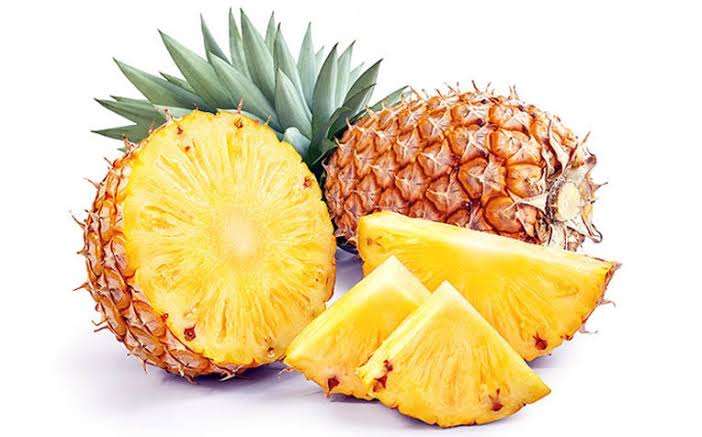
Nutrition Value (per 100 g):
Calories: 50 kcal
Vitamin C: 47 mg
Protein: 0.5 g
Carbohydrates: 13 g
Fiber: 1.4 g
Manganese: 0.9 mg
Benefits:
Pineapples are tropical fruits rich in Vitamin C and manganese. They contain bromelain, an enzyme that aids digestion and reduces inflammation. Vitamin C in pineapple boosts immunity and promotes skin health. Its natural sweetness provides quick energy, while manganese supports strong bones and metabolism. Eating pineapples regularly helps in weight control, improves digestion, and reduces joint pain. Pineapple juice and fresh slices are refreshing and healthy options.
- Potatoes
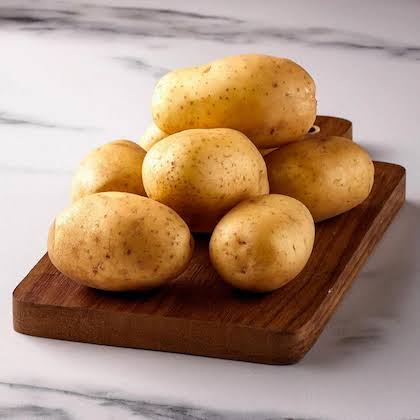
Nutrition Value (per 100 g):
Calories: 77 kcal
Vitamin C: 20 mg
Protein: 2 g
Carbohydrates: 17 g
Fiber: 2.2 g
Potassium: 429 mg
Vitamin B6: 0.3 mg
Benefits:
Potatoes are starchy root vegetables that surprisingly contain Vitamin C. They provide slow-release carbohydrates for energy and keep you full for longer. The Vitamin C supports immunity, while potassium helps balance blood pressure. Potatoes are also a good source of Vitamin B6, which supports brain health. To keep them healthy, potatoes should be boiled, baked, or steamed instead of fried. They are versatile and can be used in soups, curries, and salads.
- Kiwis
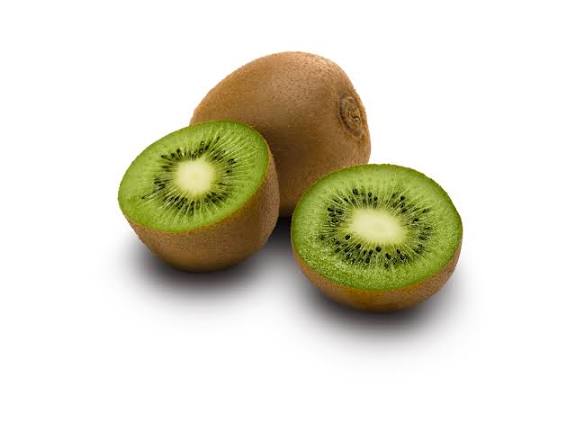
Nutrition Value (per 100 g):
Calories: 61 kcal
Vitamin C: 92 mg
Protein: 1.1 g
Carbohydrates: 15 g
Fiber: 3 g
Potassium: 312 mg
Vitamin K: 40 mcg
Benefits:
Kiwi is one of the best Vitamin C-rich fruits. It helps boost immunity, reduces stress, and improves skin glow. Kiwi is also beneficial for heart health, lowering cholesterol and blood pressure. Its fiber improves digestion and supports healthy weight management. Antioxidants in kiwi fight aging signs and support eye health. Eating kiwi before bedtime may improve sleep quality. It can be eaten fresh, blended in smoothies, or added to fruit salads.
- Sweet Peppers
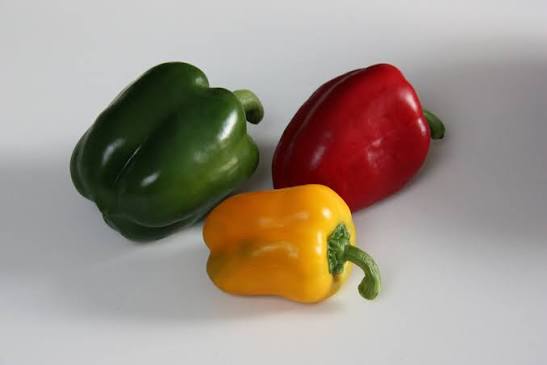
Nutrition Value (per 100 g):
Calories: 31 kcal
Vitamin C: 128 mg
Protein: 1 g
Carbohydrates: 6 g
Fiber: 2.1 g
Vitamin A: 157 mcg
Benefits:
Sweet peppers, especially red and yellow, contain more Vitamin C than most citrus fruits. They are excellent for immunity, skin, and eye health. Vitamin A improves vision, while fiber supports digestion. Their antioxidants protect the heart and lower inflammation. Being low in calories, sweet peppers are ideal for weight management. They can be eaten raw in salads, roasted, grilled, or stir-fried. Their bright colors also make dishes visually appealing.
- Cabbage
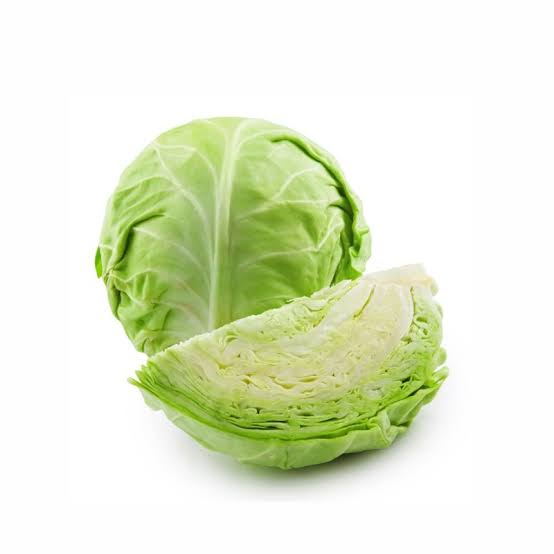
Nutrition Value (per 100 g):
Calories: 25 kcal
Vitamin C: 36 mg
Protein: 1.3 g
Carbohydrates: 5.8 g
Fiber: 2.5 g
Vitamin K: 76 mcg
Benefits:
Cabbage is a leafy vegetable rich in Vitamin C and Vitamin K. It supports immunity, reduces inflammation, and helps detoxify the body. Vitamin K is essential for healthy bones and blood clotting. Fiber in cabbage supports digestion and weight control. Red cabbage, in particular, has even higher antioxidants. It can be eaten raw in salads, cooked in curries, or fermented as sauerkraut for probiotic benefits.
- Strawberries
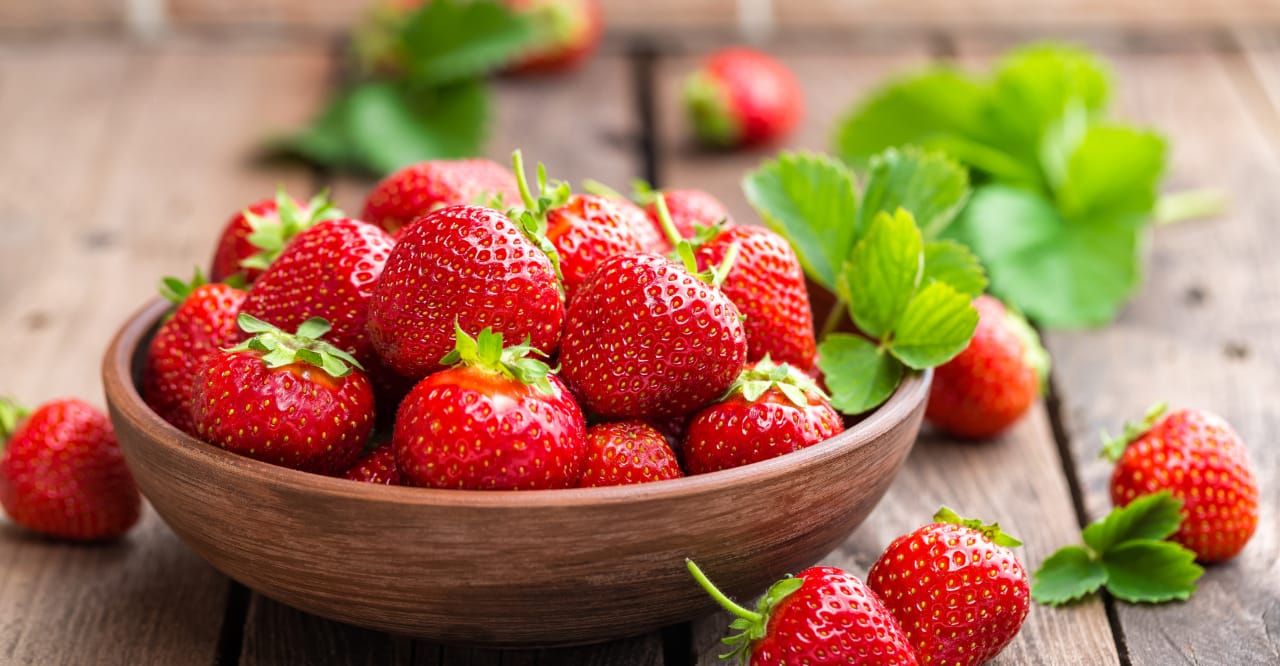
Nutrition Value (per 100 g):
Calories: 32 kcal
Vitamin C: 59 mg
Protein: 0.7 g
Carbohydrates: 7.7 g
Fiber: 2 g
Manganese: 0.4 mg
Benefits:
Strawberries are sweet, juicy fruits filled with Vitamin C and antioxidants. They promote heart health, reduce cholesterol, and support brain function. Their antioxidants slow down aging and protect against cancer. The Vitamin C in strawberries strengthens immunity and improves skin glow. They are low in calories, making them great for weight control. Strawberries can be eaten fresh, added to smoothies, or combined with yogurt.
- Lemons
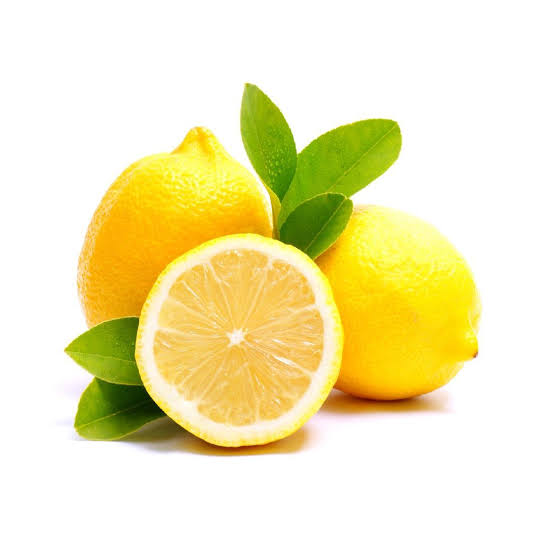
Nutrition Value (per 100 g):
Calories: 29 kcal
Vitamin C: 53 mg
Protein: 1.1 g
Carbohydrates: 9 g
Fiber: 2.8 g
Potassium: 138 mg
Benefits:
Lemons are citrus fruits famous for their Vitamin C content. They boost immunity, improve digestion, and prevent kidney stones. Lemon water detoxifies the body and aids weight loss. The Vitamin C helps in collagen production, keeping skin firm and youthful. Lemons also help fight infections, reduce inflammation, and support heart health. They can be used in drinks, teas, salads, and cooking for both flavor and nutrition.
Conclusion
Vitamin C-rich foods are essential for a strong immune system, glowing skin, healthy bones, and overall well-being. From broccoli and blackcurrants to lemons and strawberries, each of these plant foods brings unique benefits along with Vitamin C. Eating a variety of them daily ensures that the body gets enough nutrients to stay healthy, fight diseases, and remain energetic. Instead of depending on supplements, adding these natural plant-based sources to your diet is the best way to meet your Vitamin C needs.


